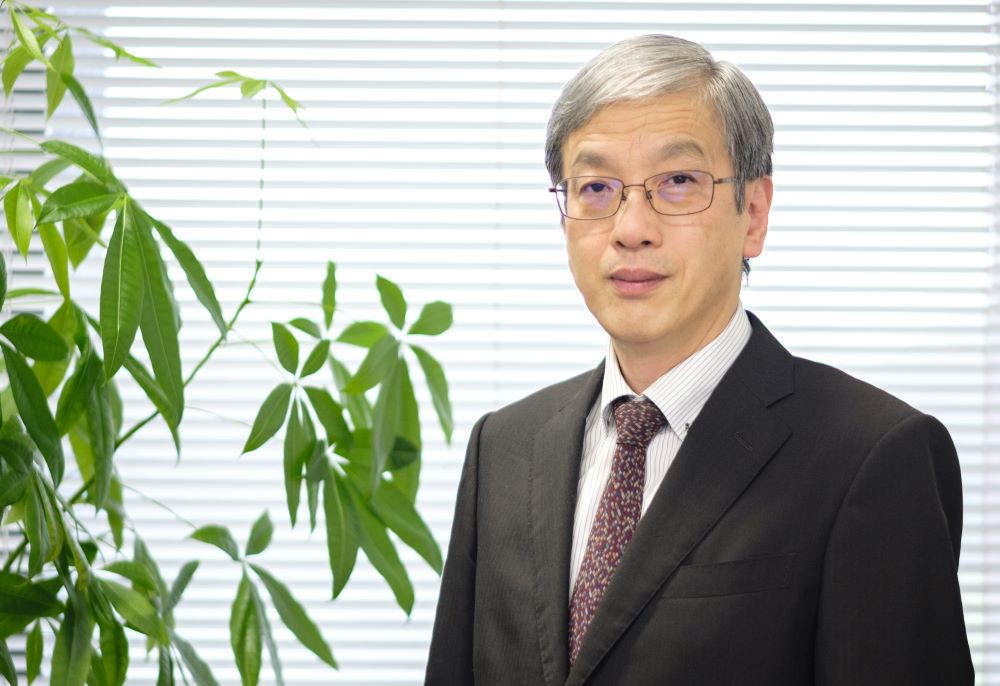2022.2.4
IRIDeS Academia-Industry Collaboration Part 1

Prof. Hiroaki Maruya, Deputy Director
Disaster Resilient Society Promotion Lab
Academia-industry collaboration has been essential for Tohoku University in recent years. Tohoku University regards social contribution as its third mission, following its first and second missions: education and research. Academia-industry collaboration is positioned at the core of the above-mentioned third mission, and thus, Tohoku University departments, including IRIDeS, are making solid efforts in this area.
Recently, the Public Relations Office interviewed Prof. Hiroaki Maruya, Deputy Director of IRIDeS, to find out how academia-industry collaboration activities have been carried out at IRIDeS. Prof. Maruya has implemented collaborative projects with several companies in his laboratory. He is also the liaison from IRIDeS who introduces communications and relations between the University and industry.
▷Academia-industry collaboration takes diverse forms
When you hear the words “academia-industry collaboration,” the image that often comes to mind may be that of university researchers receiving funding from a company to jointly develop some technology or equipment or to obtain a patent. However, there are many more forms of collaboration.
Regarding laboratories established for academia-industry collaboration, IRIDeS has created the Earthquake Induced Tsunami Risk Evaluation Lab (Tokio Marine and Nichido Fire Insurance), the Earthquake Disaster Prevention for Urban Areas Lab (OYO Corporation), and the AEON Disaster-Resilient and Environmentally-Friendly City Creation Joint Research Lab. The Nippon Koei Resilient City Technology Implementation Joint Research Lab will also be launched in April 2022 (see IRIDeS Academia-Industry Collaboration Part 3). Also, there are joint research contracts between IRIDeS and the industry. Many IRIDeS faculty members are conducting research and activities with business enterprises daily.
In IRIDeS, I am a Practical Research and Collaboration Division member, specializing in business continuity plans (BCPs) and disaster risk reduction (DRR) for companies and organizations. Thus, by nature, collaboration with industry is a part of my specialty. I am also a concurrent faculty member of the AEON Disaster-Resilient and Environmentally-Friendly City Creation Joint Research Lab, and I am supporting the creation of DRR measures for the AEON Mall, which is planned to be built on the former site of Tohoku University’s Amamiya Campus.
In addition, I attend corporate committees and provide advice under an academic advisory contract, which is also one of our academia-industry collaboration activities. Additionally, since 2014, I have been organizing monthly academia-industry-government study meetings where several IRIDeS researchers have participated and given presentations. In those meetings, researchers exchange opinions with business people and government officials. I consider that academia-industry collaboration includes such activities to organize those meetings where people from different backgrounds can have a common ground on DRR. Furthermore, based on academic guidance contracts with business enterprises, I have supported building corporate BCPs and I am preparing a textbook on corporate DRR training.
▷Helping companies develop human resources in charge of DRR and working on corporate DRR strategies together
As a part of joint research on DRR and BCPs, our lab has accepted young employees from companies as IRIDeS research associates to help those companies develop their human resources and corporate DRR strategies. These research associates are stationed at IRIDeS or commute here every week. They attend classes related to DRR at the School of Public Policy where I teach. Those joint researchers share their industry DRR experiences with university students, while acquiring a wide range of knowledge in those classes. They also discuss realistic corporate DRR issues with students and me, collaborate to find solutions, and bring back these findings to their companies.
Unlike other students who have not yet entered the workforce, those research associates are already familiar with how corporate organizations work. The DRR issues they are facing are tangible ones in the corporate world. Since we examine them together from an academic perspective and based on our knowledge of past cases, the response methods we derive will be realistic and creative.
